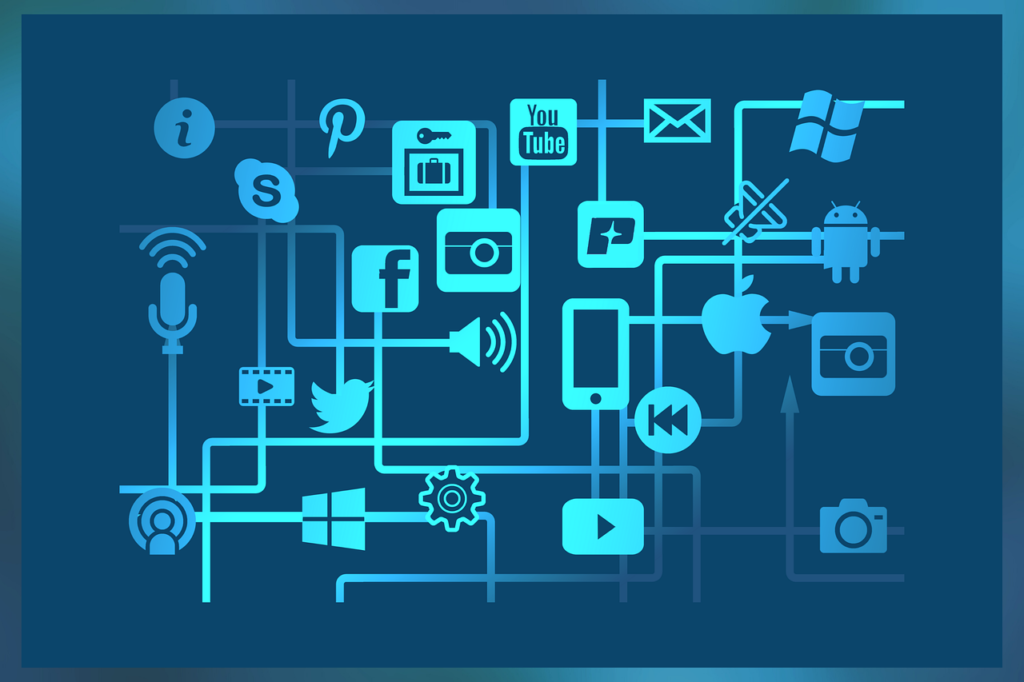The extent of which social media shapes our behaviour
By Samuel BENNETT-BYWOOD MAM-S6ENC
Edited by Julia DEC MAM-S5ENC
There was a time when the idea of a drug that kept society nicely distracted was the stuff of science fiction. Perhaps Aldous Huxley didn’t consider the addictive attraction of Wi-Fi and a glowing rectangle in our hands. As it turns out, soma didn’t require lab synthesis: it just required a user interface and a scroll feature. Social media, which had been hailed as a thing of innovation, is now at the centre of our mental health crisis. Its power now goes beyond connecting with those we would not be able to otherwise: it transforms the way we see ourselves.

Sociologist Charles Cooley had once suggested that we build our self-image through imagining how the world perceives us, a concept called the “looking-glass self.” In the new era of the web, that mirror has been replaced by our selfie cameras. There, acceptance is not abstract; it’s quantifiable. A like, a share, a follow all equates to a sneaky vote of approval, or lack thereof. This perpetual cycle of online critique creates a greater self-consciousness. Studies have found a causational relationship between social media consumption and the low self-esteem among teenagers. It’s no surprise, really. When your personhood is something to be marketed, it’s easy to conflate these interactions with self-worth.
We live in a world where beauty is not simply something that exists, but something manufactured and purchased. On the internet, the pressure to present a filtered existence is crushing. The “aesthetic lifestyle” is not a trend: clean rooms, calm mornings, minimalism in beige, all captured in perfect light, all the while maintaining an image of effortlessness. This image-curated life enables a subconscious comparison in our minds. The more we see, the more we believe we should emulate. As a 2014 survey by Scope found, over 60% of users on social media indicated that their own success was minimized by comparison with what they were seeing online. That feeling of inescapable falling behind is due to how the platform was designed, not your own brain.
The panopticon prison design is structured as a circular building with a singular watchtower placed in the middle; the idea is that every prisoner in the building can be surveilled by just one person, because although it is impossible for all prisoners to be observed simultaneously, the mere possibility of being watched causes inmates to self-regulate. We exist now in the same condition: social media acts as a virtual panopticon because at any moment, our actions could be filmed, distributed, and immortalised on the internet. This alters how we act, as we tend to soften our own rougher corners, play defensively, and simplify our complexity to keep others content. We don’t dare be wrong in what we say, wrong in what we wear. Conformity dominates authenticity.
Another side effect of the social media age is the degradation of attention. The dissemination of short-format content such as reels and TikToks clips has rearranged how we handle information. This revolution does not stop at entertainment. It’s redefining education, journalism, and politics as well. Students, as stated by Oxford researchers, are finding it hard to engage with long-form content. Politics has been reduced to slogans and viral videos. The shape of content has changed the way we think. As attention has shrunk, the tolerance for nuance has eroded. Emotional cues overrule rational thought. Consider headlines crafted to outrage us instead of to be understood — they’re not errors; they’re design. Not even world leaders are safe from this plague of the short attention span. The now infamous claim that Donald Trump required NATO briefings to remain under four minutes shows how even political communication is adapting to the attention economy.
In conclusion, social media has permeated through almost every facet of our lives. From the average student to world leaders, there remains no aspect of anyone’s life untouched by social media’s influence; this has profoundly shaped the way we communicate with each other, how we consume and interact with information, and how we perceive ourselves. The internet monoculture dictates how we should present ourselves which ultimately undermines the essential human trait of authenticity. In order to continue to engage with these social media platforms, we must recognise the impact they have on human psyche and navigate these platforms with the tact and mindfulness required, fostering a balance that allows us to reap the benefits while also protecting our mental health.
